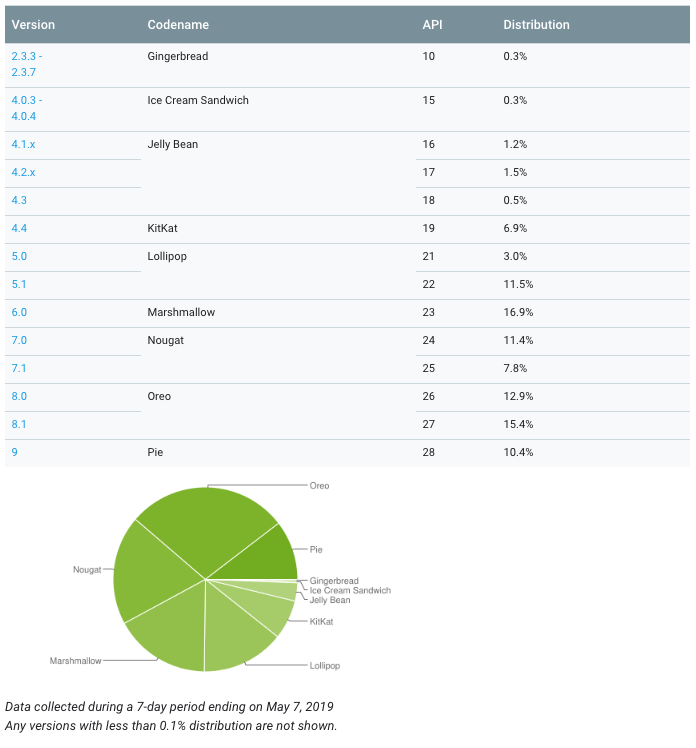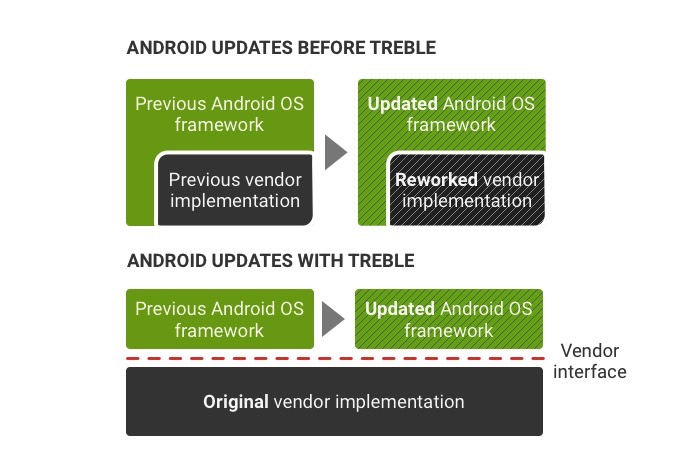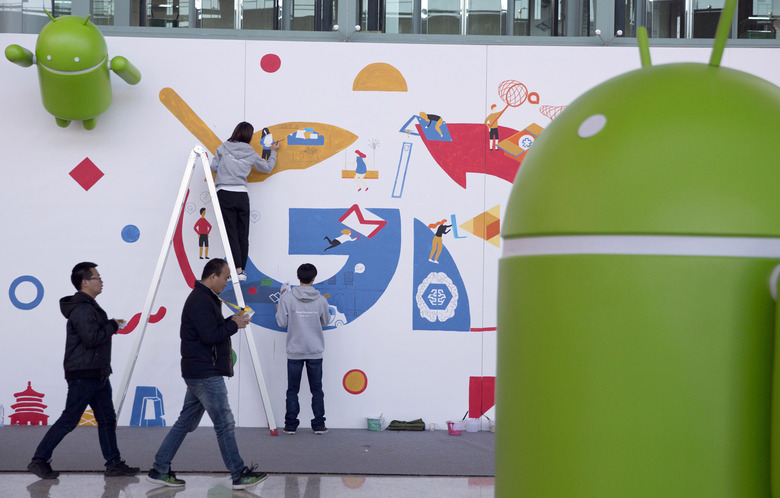Google's Android Fragmentation Fix Still Isn't Working At All
Google I/O 2019 is now underway, and the show this year opened the same way it does every year. CEO Sundar Pichai and other Google executives took the stage to deliver a keynote presentation that sets the tone for Google's ecosystem in the year to come. This year, the focus was clearly once again on artificial intelligence, augmented reality, and machine learning, with Google Assistant now finding itself at the center of Google's most exciting experiments. Decidedly less exciting were all of the new Android Q features that the company showed off on Tuesday. Of course, the fact that Android Q is a bit boring shouldn't really be a big deal to anyone for the time being, even for people who use Android smartphones and tablets. Why? Because for the vast majority of people out there, it will still be years before Android Q actually makes it to any of their devices.
Early on in the Google I/O 2019 keynote on Tuesday, Google made a staggering announcement: there are now 2.5 billion active Android devices in use around the world. Even more incredible is the fact that more than 75 million of them still use a version of Android that was released all the way back in 2012. That's six years ago, and it's a crime. But wait, it gets worse! 172.5 million devices run a version of Android that was released 5 years ago in 2013, and a whopping 362.5 million devices currently run Android Lollipop, which was released in 2014. IN other words, more than 600 million Android devices run software that is at least 4 years old. That's not bad, it's a travesty.
Following the Google I/O keynote, Google shared update version distribution data for the first time since October of last year. Here's the new chart, which is available on the Android developer site:

On the plus side, Android Pie has finally reached double digits. But is that really a plus? Let's put that figure in perspective: it means that just over 10% of the Android devices in the world have access to all the latest features. Let's add even more perspective: Android Pie was released 9 months ago — it took iOS 12 just over one month to reach a whopping 60%!

When Google released Android Oreo 2 years ago in August 2017, it introduced a new feature called Project Treble. The graphic above is an illustration of how it works. In a nutshell, Treble separates the core Android framework from all of the bells and whistles added by smartphone makers. This way, they can deploy major Android OS updates that don't affect their software additions at all because they solely impact the core framework. In theory, it's a brilliant move that's clearly aimed at speeding up Android update deployment and it should go a long way to fix Android fragmentation. "Should" is the operative word, though, because it's clearly not doing anything at all to fix this problem.
